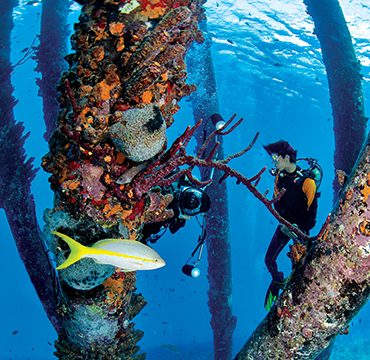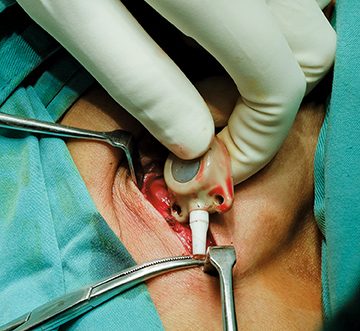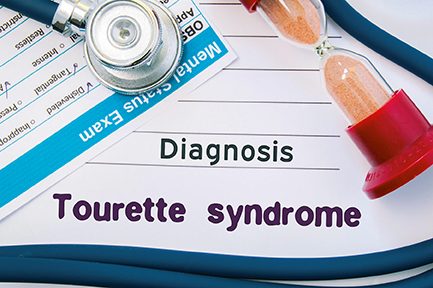DAN® medics and researchers answer your dive medicine questions.

My son is on the autism spectrum and wants to learn how to scuba dive. Will his autism be a problem?
Every autistic person is unique and must be evaluated independently. There will never be an all-inclusive recommendation.
First, all decisions must be made by you, properly trained dive instructors, and the physicians who are most closely involved in his behavioral and physical care. For some individuals, scuba diving comes naturally, and they handle it well with the proper accommodations and qualified instructors. For others, the risks are too high, and diving should not be considered. Each case depends on the person’s level of function and comorbidities.
In making an informed decision, you must consider the following: Does he have any sensory imbalances? These can cause hyperreactivity to stimuli that can be aggravated underwater as well as panic and subsequent life-threatening injuries.
Can he make prompt decisions and monitor gauges, depth, air consumption, and buoyancy? Research indicates that many people on the autism spectrum have some degree of cognitive impairment, which can affect decision-making.
Repetitive behavior such as tics or rocking may present difficulties with basic underwater skills such as buoyancy control, which could lead to injury. Some people on the autism spectrum have challenges with muscle tone and coordination.
Finally, you must consider his awareness of cues and his ability to understand the need to frequently equalize his ears.
This is not an all-inclusive list. You may wish to review this information with groups that specialize in autism spectrum disorder.
If he is cleared to dive, investigate organizations that specialize in scuba diving for people with disabilities. Depending on your son’s level of functioning, an adaptive scuba instructor may be a resource to consider.
— Shannon Sunset NCPT, NREMT

Would a diagnosis of hypermobile Ehlers-Danlos syndrome affect my ability to dive?
Diagnosis of hypermobile Ehlers-Danlos syndrome (EDS) is considered a relative contraindication to diving, meaning that depending on the nature and severity of this highly variable condition, diving may or may not be recommended.
EDS is an inherited disorder that affects the connective tissues of the body and has several classifications based on symptom presentation and location, including hypermobility (or overly flexible joints), which is associated with a defect in collagen, affecting connective tissues’ ability to support muscles, organs, and other tissues.
The industry standard is for a diver to be able to put on all equipment, enter the water, swim, be able to self-rescue or rescue a buddy if required, exit the water, and remove all equipment without assistance. These activities involve movements of your major joints and back and could provoke common complications from this condition such as joint dislocations or subluxations. Having a joint dislocation occur while diving can place you in a dangerous situation.
Some symptoms of hypermobile EDS are joint pain (including costochondritis in the chest) and bruising; these symptoms mimic those of decompression sickness and may make it difficult for a physician to properly diagnose you should you have a problem while diving.
The condition is associated with Raynaud’s disease, which means the risk of spontaneous pneumothorax must be considered. Additionally, cardiovascular concerns can include valve dysfunction and vascular aneurisms that should be followed regularly by imaging.
Other issues include skin fragility, bleeding issues, jaw dysfunction, globe (eye) rupture, kyphoscoliosis (a restrictive lung disease), gastrointestinal issues (including bowel rupture), and loss of consciousness (orthostatic hypotension or postural orthostatic tachycardia syndrome).
Discuss these issues with your physician team before diving, and encourage them to call DAN for consultation.
— Anne Strysniewicz, AEMT, DMT

I am a certified open-water diver and a cancer survivor. To facilitate repeat chemotherapy, surgeons installed a port just under the skin in the upper chest area below the clavicle. I finished chemotherapy five months ago, and the cancer has been dormant for the past several months. What concerns or limitations should I consider before returning to diving?
With regard to your port, if everything has healed and there are no complications, you should be able to return to diving if you are otherwise healthy and fit for the rigors of the sport. These ports are typically filled with fluid and are therefore noncompressible at depth, so in that regard diving should not be a concern. Several different manufacturers make the ports, however, so we recommend asking your oncologist to check with your device’s manufacturer for pressure ratings or depth restrictions.
If your doctors have released you for full, unrestricted activity, you should be able to return to diving without complication. Given that it has been some time since you were last in the water, however, we recommend completing a graded exercise program and a refresher course to help you get ready to safely dive.
— Ben Strelnick, NREMT, W-EMT

I am evaluating a patient with Tourette syndrome who wants clearance to scuba dive. He has significant motor tics, so I need guidance or resources to discuss with the family.
Tourette syndrome is a neurological disorder that is a relative contraindication to diving. The nature and severity of the motor tics need to be considered along with any associated conditions. Even a simple tic such as coughing, throat clearing, or grunting that may involuntarily occur during ascent may result in obstruction of air flow and increase a diver’s risk of pulmonary barotrauma. Also consider whether the diver will be able to hold and maintain a regulator in his mouth for the duration of the dive.
Strong and violent motor tics may cause injury to the diver or others or affect gear or situational awareness while underwater, potentially leading to a dangerous situation. Stress, excitement, and anxiety have been reported to worsen the severity of tics. This can be especially problematic during an emergency ascent or challenging sea conditions.
Have an honest, detailed conversation with the dive candidate and their support system, which should include their family, dive supervisors, and physician team. Discuss the realistic expectations of diving and whether their current medical status allows them to dive safely.
You have already identified significant motor tics that would be of concern. The industry standard is for a diver to be able to safely put on all equipment, enter the water, swim, self-rescue or rescue a buddy if required, exit the water, and remove all equipment without assistance.
For more information about adaptive diving, contact DiveHeart (diveheart.org) or the Handicapped Scuba Association (hsascuba.com). They may have additional insight or experience working with divers with this condition.
— Anne Strysniewicz, AEMT, DMT
© Alert Diver — Q4 2022